Alex Atack – Unsentimental City
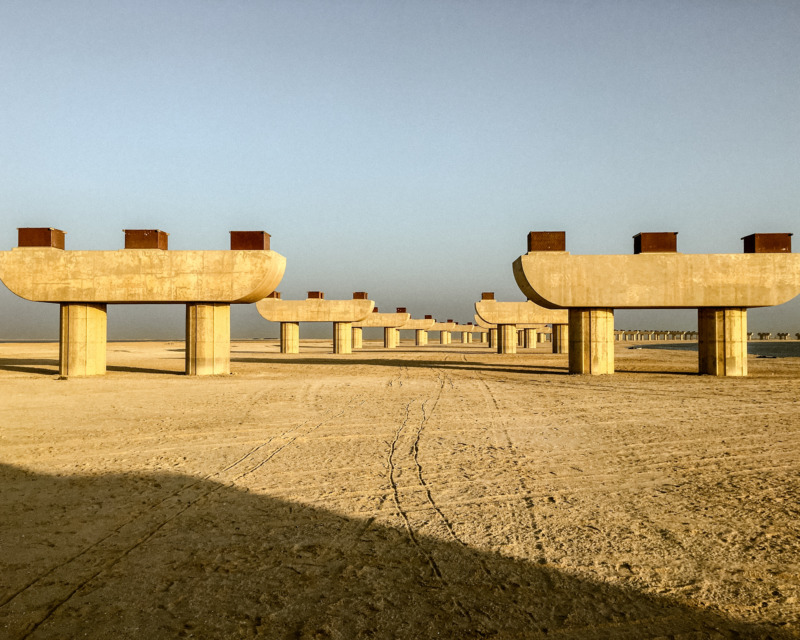
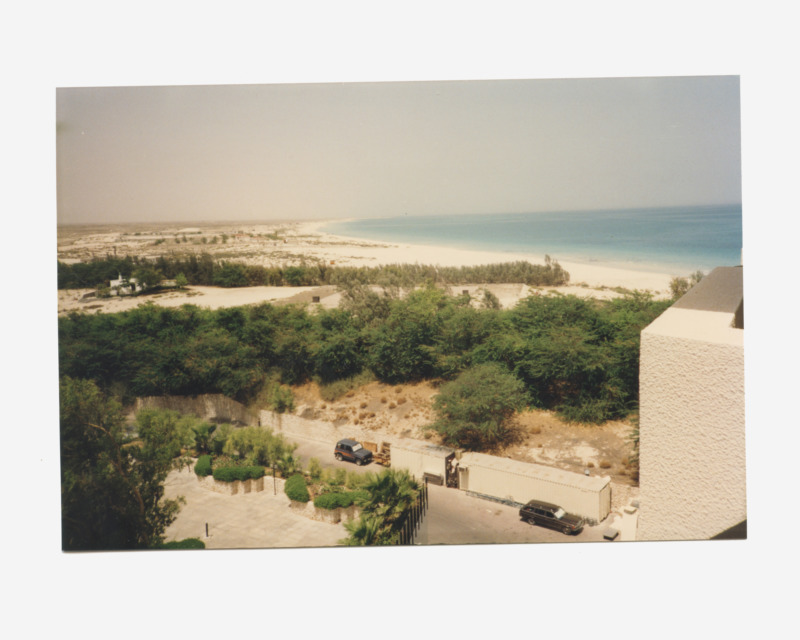
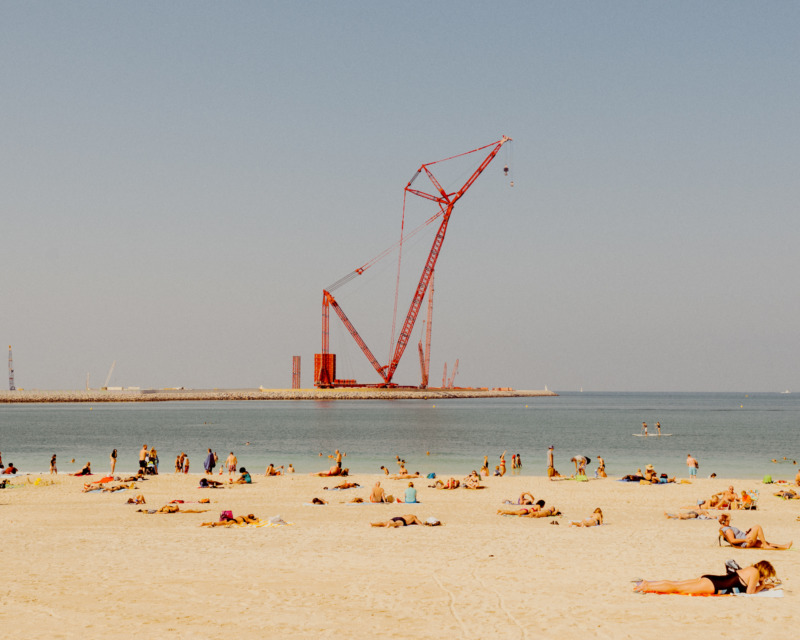
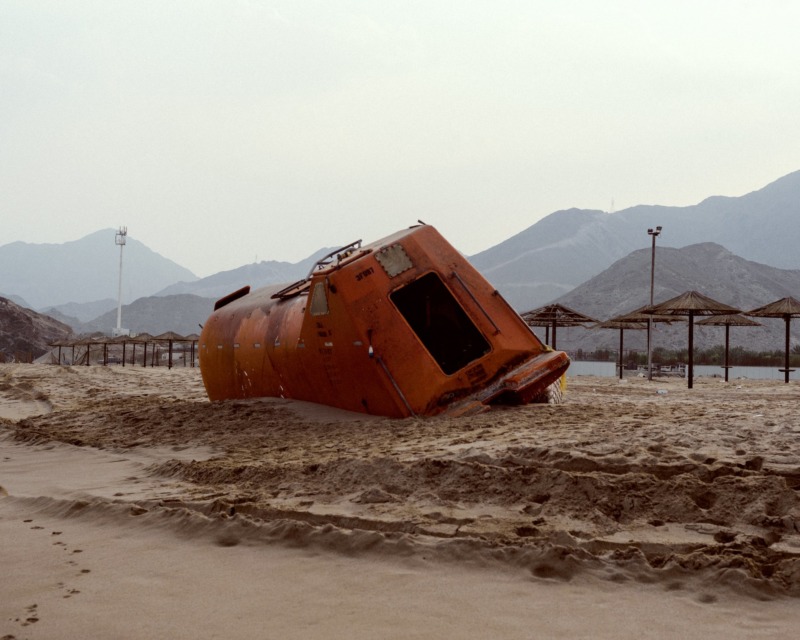
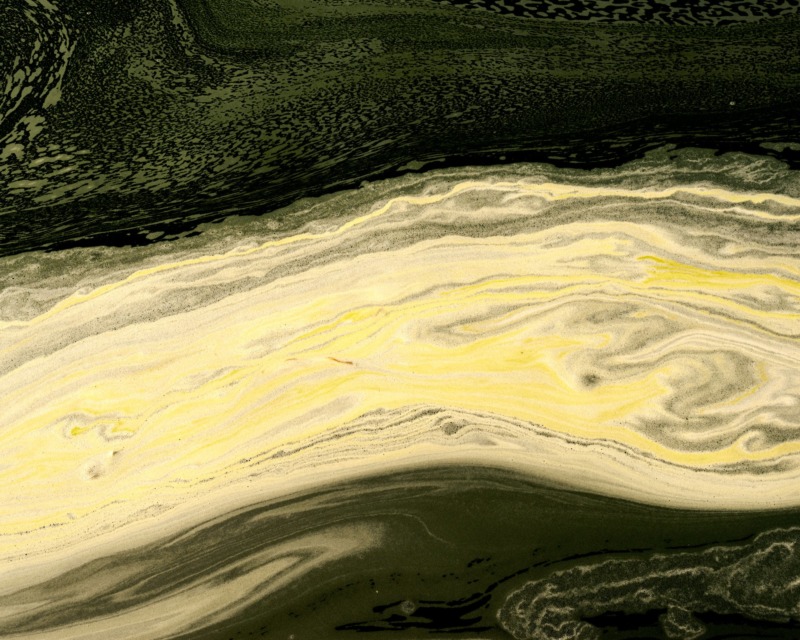
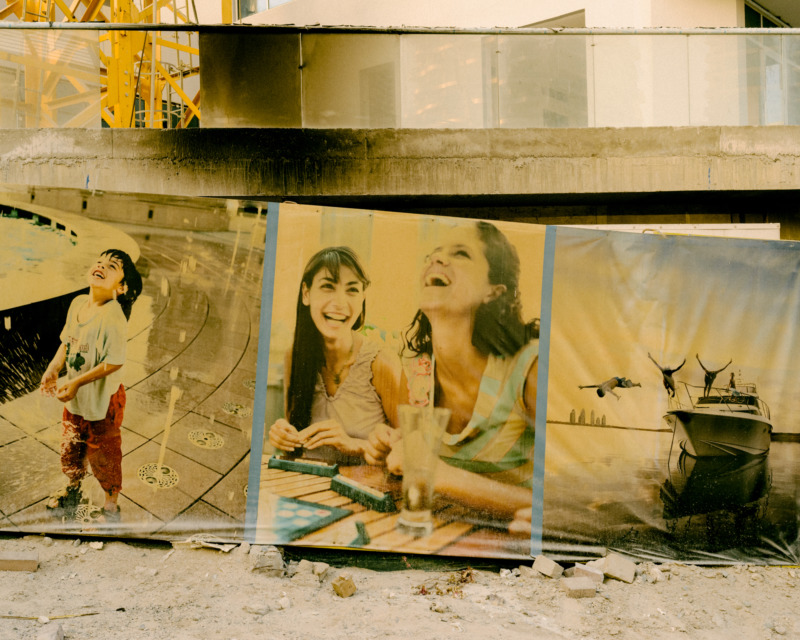
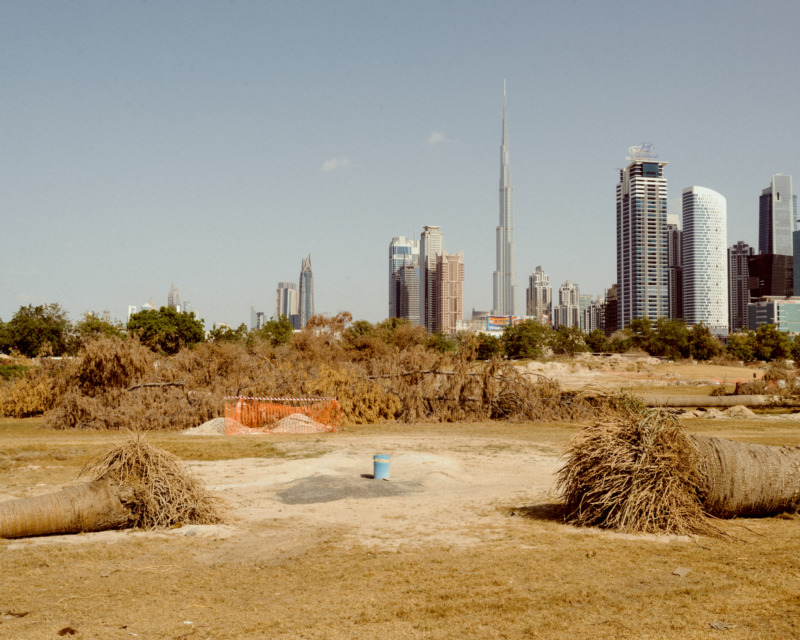
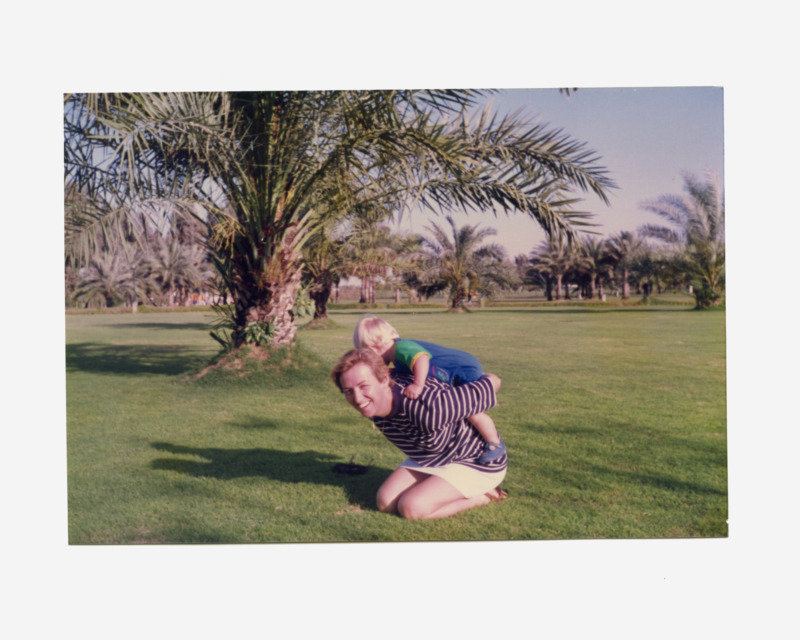
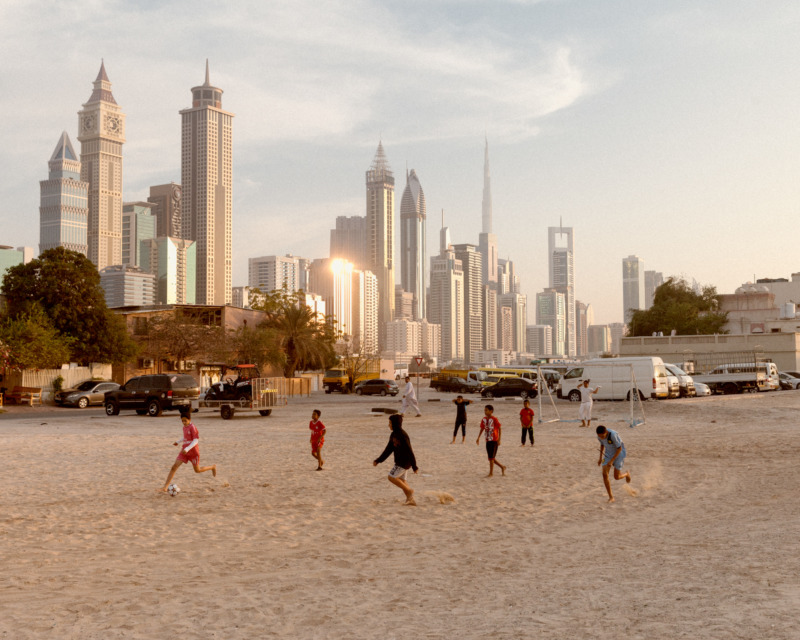
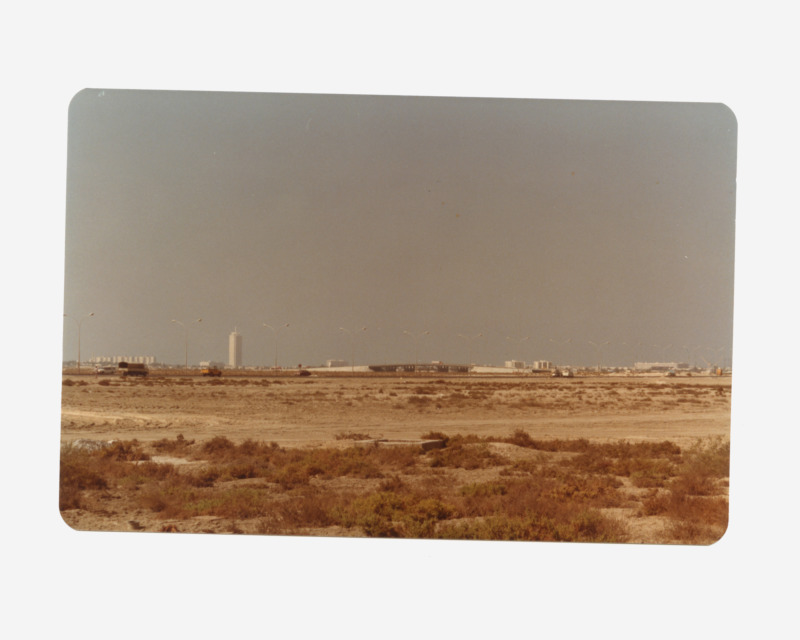
My parents took hundreds of pictures of their life in the UAE. They fill enormous, leather bound family albums, and those albums fill boxes and boxes in the shed at the bottom of their garden. I took a lot of pictures of my life in Dubai too, when I moved back there as an adult. Many of our pictures were of the same places, the same experiences – just a couple of decades apart. This project is about my family’s story, but it’s also the story of Dubai’s growth, and the story of the many foreigners who made and left behind memories in this unsentimental city.
My Mum and Dad moved from England to the UAE in the 1980s – my Dad from a small mining town in the north and my Mum from south London. It was aviation that took them there. By then, Dubai had just about realised that they couldn’t rely on oil in the way Abu Dhabi could, and it’d started to model itself as the biggest transit hub in the Middle East. For my Dad, that meant a job at the airport, checking the weights and balances of freight planes going out of Dubai. For my Mum, it was a job as a flight attendant with British Airways.
They arrived at the beginning of a massive period of growth for Dubai. A few years before, the UAE had gained independence from the British, and my parents were among the first waves of foreigners to move to the city for work in this new era for the UAE. It was quiet back then. Weekends were spent on the beach – there were miles and miles of untouched beach – or driving out to camp in the desert, or at a neighbour’s backyard barbecue, or having coffee at one of the few shopping malls.
I was born in 1993, and some of my earliest memories are of Satwa, the neighbourhood I grew up in, or of Safa Park – a huge public space in the middle of the city. In 2015 they started demolishing it to make way for a canal.
Some weekends, we’d visit friends in Abu Dhabi, and on the way back I knew we were nearly home when we saw the silhouette of the Hard Rock Cafe in the distance. It was only a few storeys high, but it was the only thing around for miles. That got demolished in 2013.
Then Dubai hit the boom years. This was around the early 2000s. Entire neighbourhoods were popping up in places that seemed miles away from anything. Our family moved from Jumeirah to a neighbourhood that hadn’t existed two years before. We’d spend each summer in the UK and when we arrived home in September, my sister and I would play a game on the way home from the airport, trying to be the first to spot the building sites that weren’t there when we’d left a few weeks ago.
My Mum and Dad stayed in Dubai for the next 30 years or so. And by the end of those three decades, the things that that first wave of foreigners had first loved about the city had almost entirely gone.
One evening a couple of years ago, I was interviewing a friend for a radio story, and he said something that stuck with me:
“It really sucks to just watch your childhood memories just be erased for a new road, or a mall. Another fucking mall. But you can’t blame it. It’s young, it’s growing, it’s developing, it’s never where it wanted to be five years ago. It’s still not where it wants to be. And it will never be. It will just continue to be this beacon of innovation and modern infrastructure and growth, but that’ll be for another generation, not ours.”
It’s a common complaint from people who have lived there for any significant time: this place isn’t what it used to be. Now, whatever Dubai used to be only exists in these photo albums, tucked away in the bottom drawers of cupboards in our parents’ garden sheds.
Alex Atack is a photographer and radio producer based in the UK. He started his career in 2014 freelancing in the UAE, where he was brought up. He then moved to Bristol for a while, then to Beirut. He now lives in Brighton, on the south coast of the UK, and splits his time between photography assignments and making radio documentaries. Atack is a producer at Kerning Cultures, a show described in The Guardian as, ‘a This American Life for the Middle East’.
